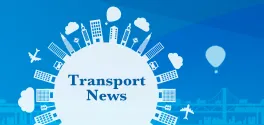A message from the TPS' Chair - Mark Frost
It was a busy end of the year for me and TPS generally, as our Transport Planning Day campaign for 2022 reached its climax at the ICE on 14th November.
This year's theme around 'future proofing' transport proved a rich canvas to explore a wide range of different issues around how we can develop the network today in order to meet the needs of the next generation(s).
As part of this year's campaign, I was delighted that the Society was able to once again ask the University of Hertfordshire and Stephen Joseph to update our 'State of the Nations' review on the current health of transport planning in the UK.
The work brings together what we now know about the potential impacts of the pandemic on travel demand across the country. It also serves as a record of the responses that our different governments made to this unprecedented shock to the system.
Whilst the focus was on looking forward, it’s quite incredible and somewhat sobering to take a step back and remind ourselves of the huge breadth of what has happened across the sector in just twenty four short months. The effective end of rail franchising; the establishment of Active Travel England and demands that local government reallocate road space “at pace”; the publishing of ‘Bus Back better’ – the list goes on and broadly it’s a really progressive list of achievements.
For this update we used the lens of divergence in policy between the different nations of the UK to explore best practice. And there was a great wealth of evidence out there, for example:
- Northern Ireland committing 10% of funding to active travel, cutting public transport fares by 20% across the board and moving to hardwire whole life cycle costing into decision making when considering capacity enhancements. The latter point will help to ensure the full cost of new kit, that extends many decades into the future, is properly considered at the point any decision is taken to invest.
- Scotland committing to a 20% reduction in traffic levels by 2030. That single decision is unlocking huge amounts of energy and innovation into how this can be achieved whilst still delivering sustainable economic growth. Whilst clearly ‘shift’ measures will be important here, it brings a new urgency to seeing what levers we can pull to help ‘avoid’ the need to travel, with perhaps a particular focus on digital access planning.
- Wales' Future Generations Act 2015 continues to deliver progressive changes to the approach they are taking to investing in new capacity. Building on the bold decision to cancel the M4 relief road and the subsequent set up of the South East Wales Transport Commission, chaired by Lord Burns (South East Wales Transport Commission | GOV.WALES), the exciting process for exploring non-road building interventions in tackling congestion is now being mimicked in the north of the country.
- Whilst England hasn't set explicit traffic reduction targets, the introduction next year of Quantified Carbon Reduction to accompany a new era of Local Transport Plans is a welcome step towards ensuring that all parts of the UK start pulling in the same direction in reducing carbon from the sector. If properly applied, and with LAs held to account on their plans, then it should lead to a real shift in effort and resource towards reducing negative externalities from transport.
Whilst some have used the diversity of approach to illustrate division, or some sort of race with winners and losers, actually its very healthy to have multiple test beds, all trying out different ways of responding to the challenges we face.
You can read the full State of the Nations update document here: https://tps.org.uk/tps-policy/state-of-the-nations-update-2022.
At Transport Planning Day held at the ICE (recording available here: https://www.youtube.com/watch?v=NB9ddEBTmHw) we had the opportunity to discuss these points in more depth, through our second session dedicated to an intergenerational panel. This consisted of a range of participants representing different ages and perspectives, drawn from across the sector. We were also lucky enough to hear insight from Rhiannon Hardiman, from the Office of the Future Generations Commissioner for Wales, as to the practical steps they have taken to make sure that policy and investment takes full account of the impact of today's decisions on tomorrow. Rhiannon made this point which I think sums up the Welsh approach quite well:
“Thinking long-term shouldn't mean ignoring the present. Far from it, it just forces us to acknowledge the damage we could be doing if we continue the way we are going (or indeed, the good we could be doing).”
I found it a really thought provoking session and hope the many members who joined us in person or online were similarly enthused.
I was also lucky enough to host a roundtable of our past chair’s to mark the Society’s 25th anniversary. We provided some food, and in return we got two hours of excellent conversation and 500 words each on what the challenges of the next twenty five years will be from their perspective. Whilst there will clearly be bumps in the road ahead, it was striking how positive people were, neatly summed up by Stephen Bennett in his summary:
“There is no crisis facing us that cannot be addressed by good quality transport planning. Whether it’s the cost of living, climate change, public health, or inequality and exclusion, an affordable, sustainable, healthy and equitable transport system can really make a difference and improve people’s quality of life”.
Further details, including the anthology of contributions from my predecessors, are available here: https://tps.org.uk/tps-policy/25th-anniversary-past-chair-anthology.
Looking ahead to 2023, we have many more exciting events planned, starting with two excellent webinars in January on Transport Related Social Exclusion and Road Safety - find out more here: https://tps.org.uk/events/transport-related-social-exclusion-in-the-north-of and https://tps.org.uk/events/tps-event-on-road-safety.
One final thought - in 2023 we'll be looking for six new Directors to join our board (as well as a new chair from March!). If your new year's resolution is to get a bit more involved in shaping the profession to make sure it can meet the challenges ahead - and you have a bit of time available to work with us to make that happen, please feel free to contact me (or any of our existing board, see here for who they are: https://tps.org.uk/The-Society/tps_board) for an informal chat!
I hope you all have a merry and relaxing festive season, and look forward to seeing more of you in 2023.














